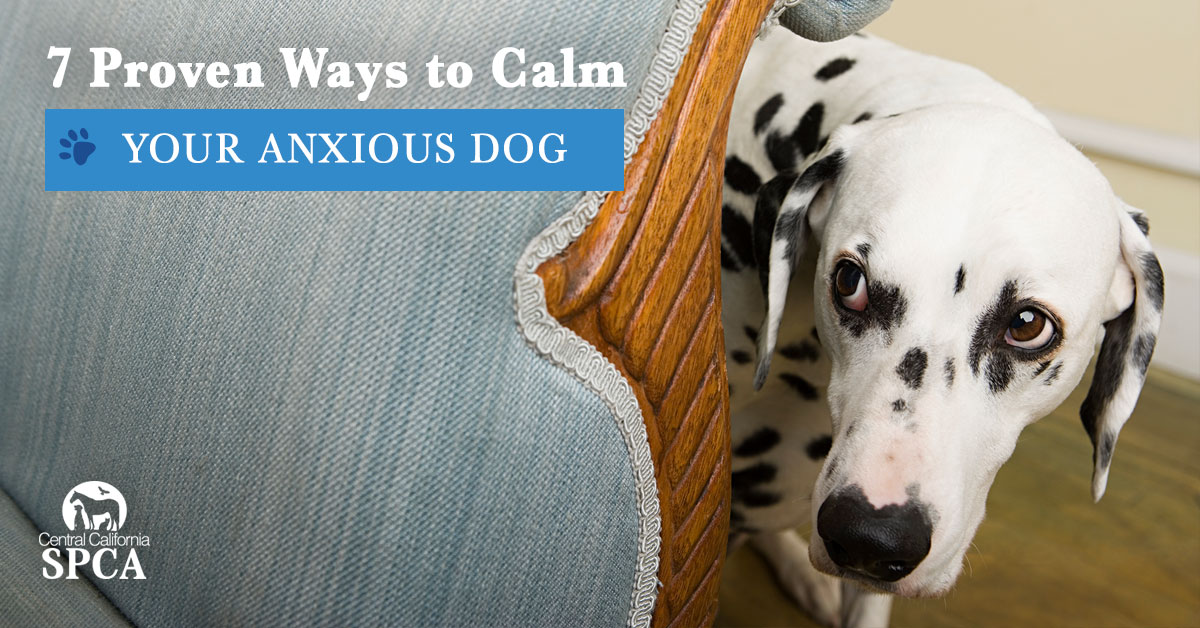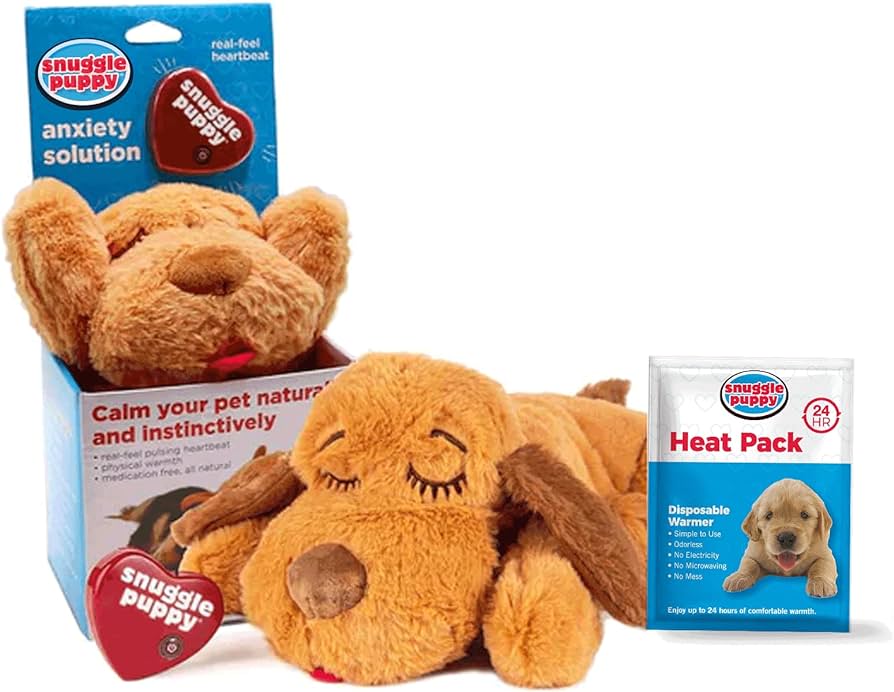When it comes to natural remedies for dog anxiety, consider options like aromatherapy with lavender or chamomile, CBD oil, and regular exercise to promote relaxation. Dog anxiety is a common issue that can cause distress for both pets and their owners.
Fortunately, there are several natural remedies that can help alleviate anxiety in dogs. Dogs, like humans, can experience anxiety for various reasons, such as separation anxiety, noise phobias, or general nervousness. As a responsible pet owner, it’s important to address these concerns in a safe and effective manner.
By utilizing natural remedies, you can help your canine companion feel more at ease and reduce their stress levels. We will explore several natural remedies for dog anxiety, providing you with valuable information and guidance to support your pet’s well-being.

Credit: www.ccspca.com
Understanding Dog Anxiety
Dogs, just like humans, can experience anxiety. Understanding dog anxiety is crucial for providing effective care and support for our beloved furry friends. By recognizing the causes and symptoms of dog anxiety, pet owners can take proactive measures to alleviate their pets’ stress and ensure their well-being.
Causes Of Dog Anxiety
Change in routine, separation from their owner, loud noises, and new environments can all contribute to dog anxiety. Some dogs may be genetically predisposed to anxiety, while others may develop it as a result of traumatic experiences. It’s essential to identify the specific triggers that lead to anxiety in each individual dog to effectively address the issue.
Recognizing Symptoms Of Dog Anxiety
Recognizing the symptoms of dog anxiety is key to addressing the issue. Common signs of anxiety in dogs include excessive barking, pacing, restlessness, trembling, panting, and avoidance behaviors. Additionally, dogs may exhibit destructive behavior, such as chewing or digging, when experiencing anxiety. Being able to recognize these symptoms enables pet owners to provide timely support and comfort to their anxious pets.

Credit: www.goodrx.com
Natural Remedies For Dog Anxiety
Does your furry friend struggle with anxiety? There are natural remedies that can help alleviate your dog’s anxiety and promote a sense of calm and well-being. Let’s explore some effective natural approaches to ease your dog’s anxiety.
Herbal Supplements
Herbal supplements such as chamomile and valerian root can have calming effects on dogs. These natural remedies are known for their ability to reduce anxiety and promote relaxation and can be administered in the form of treats or drops.
Aromatherapy
Aromatherapy utilizing specially formulated essential oils such as lavender and chamomile can help soothe dogs experiencing anxiety. Using a diffuser or applying the oil to your dog’s collar or bedding can have a calming effect.
Massage And Acupressure
Implementing massage and acupressure techniques can help relieve tension and anxiety in dogs. Gently massaging specific pressure points can promote relaxation and reduce stress. This can be particularly beneficial for anxious dogs.
Exercise And Mental Stimulation
Regular exercise and providing mental stimulation are vital for alleviating anxiety in dogs. Engaging in physical activity and providing interactive toys and puzzles can help reduce stress and promote a sense of well-being for your furry companion.
Behavior Modification Techniques
Implementing behavior modification techniques can help address the underlying causes of your dog’s anxiety. Positive reinforcement and desensitization can be effective in changing your dog’s response to anxiety-inducing situations.
Creating A Calming Environment
Dogs, just like humans, can experience anxiety. However, it is important to create a calming environment for them to help alleviate their stress. By making a few simple changes, you can help your furry friend feel more relaxed and at ease. Here are some strategies to consider:
Reducing Noise And Clutter
Noise and clutter can contribute to your dog’s anxiety. Dogs have sensitive hearing, so loud sounds such as construction noise or fireworks can be particularly distressing to them. Keeping their environment as quiet as possible can help reduce their anxiety levels. Try using curtains or blinds to block out external noise, and consider using white noise machines or relaxing music to drown out any sudden loud sounds.
Creating A Safe Space
All dogs need a safe space where they can retreat to when they feel overwhelmed. This space should be quiet, free from distractions, and contain familiar items that provide comfort. It could be a specific room in your house, a cozy crate, or even a corner with their favorite bed and toys. Make sure to introduce your dog to their safe space gradually, and provide positive reinforcement when they use it.
Improving Indoor Air Quality
Indoor air quality can also impact your dog’s anxiety levels. Poor air quality can lead to respiratory issues, which can exacerbate anxiety symptoms. To improve the air quality in your home, consider using air purifiers, opening windows for ventilation, and regularly cleaning and dusting. Plants such as aloe vera, spider plants, and snake plants can also help purify the air.
Using Music And White Noise
Music and white noise can have a calming effect on dogs, helping to drown out any disturbing sounds and create a soothing atmosphere. Soft classical music, nature sounds, or even specific music designed for dogs can help reduce their anxiety. White noise, such as a fan or a dedicated white noise machine, can also be effective in creating a sense of calm. Experiment with different sounds to find what works best for your dog.
Creating a calming environment for your dog is essential in managing their anxiety. By reducing noise and clutter, creating a safe space, improving indoor air quality, and utilizing music and white noise, you can help your furry friend feel more relaxed and at ease.
Lifestyle Changes To Reduce Dog Anxiety
Reducing dog anxiety can be achieved through various lifestyle changes that address the root causes of stress and provide a sense of security and comfort. By establishing a routine, socializing and training your dog, improving their nutrition, and creating an environment that is safe and relaxing, you can significantly reduce their anxiety levels. These lifestyle changes have proven to be effective in calming anxious dogs and fostering their overall well-being.
Establishing A Routine
Establishing a consistent routine is essential for dogs with anxiety as it helps create a sense of stability and predictability in their lives. Dogs thrive on routine and knowing what to expect in their day-to-day activities. Here are some ways to provide a structured routine:
- Set consistent feeding times and stick to them.
- Establish a regular exercise schedule to release pent-up energy.
- Create a designated quiet space for your dog to retreat to when feeling overwhelmed.
Socialization And Training
Socialization and proper training are crucial for dogs with anxiety as they help build confidence and reduce fear. Here are some tips to socialize and train your anxious dog:
- Gradually expose your dog to new environments, people, and animals in a controlled and positive manner.
- Enroll your dog in obedience classes to improve their social skills and provide mental stimulation.
- Use positive reinforcement techniques, such as treats and praise, to reward desired behaviors and build trust.
Improving Nutrition
A healthy diet plays a significant role in your dog’s overall well-being, including their anxiety levels. Consider the following nutritional changes to help reduce anxiety:
- Choose high-quality dog food without artificial additives or preservatives.
- Incorporate calming supplements, such as chamomile or lavender, into your dog’s diet.
- Consult with a veterinarian to ensure your dog’s nutritional needs are met and address any specific concerns related to anxiety.
Adding Comfort And Security
Creating a comforting and secure environment can do wonders for reducing dog anxiety. Consider the following strategies:
- Provide a cozy dog bed or crate that is comforting and serves as a safe space for your dog.
- Use pheromone-releasing products, such as diffusers or sprays, to create a calming atmosphere.
- Ensure your dog has ample physical and mental stimulation through toys, puzzles, and interactive games.
Consulting With A Veterinarian
Consulting with a veterinarian is a crucial step in addressing your dog’s anxiety. While there are various natural remedies available, it’s essential to seek professional guidance to ensure the well-being of your furry friend. Veterinarians are experts in animal health and behavior, and they can provide valuable insights and recommendations tailored to your dog’s specific needs. Here are some important things to consider when consulting with a veterinarian:

Credit: www.amazon.com
Frequently Asked Questions Of Natural Remedies For Dog Anxiety
How Can I Treat My Dogs Anxiety Naturally?
To treat your dog’s anxiety naturally, establish a routine, provide mental stimulation, give them regular exercise, try calming supplements, and consider using aromatherapy or CBD products.
How Can I Calm My Dog’s Anxiety?
To calm your dog’s anxiety, provide regular exercise, create a safe and comfortable environment, use calming aids like pheromones or music, practice positive reinforcement training, and consider consulting a veterinarian for additional support.
What Is A Calming Natural Medication For Dogs?
A natural calming medication for dogs are supplements like chamomile, valerian root, and CBD oil. These can help reduce anxiety and stress. Always consult your vet before giving your dog any new medication.
How Do You Treat Anxiety In Older Dogs?
To treat anxiety in older dogs, try creating a calm environment, providing routine and exercise, using calming aids like pheromone sprays or supplements, and considering behavioral training or medication under the guidance of a vet. Regular vet check-ups can also help manage anxiety.
Conclusion
To help your anxious dog find relief, try incorporating natural remedies into their routine. Whether it’s soothing music, regular exercise, or calming supplements, these options can promote relaxation and reduce anxiety symptoms. Remember, a relaxed and happy dog is a healthy dog, so take the time to explore these natural remedies and find what works best for your furry friend.
With a little patience and care, you can help ease their anxiety and create a peaceful environment for them to thrive in.

